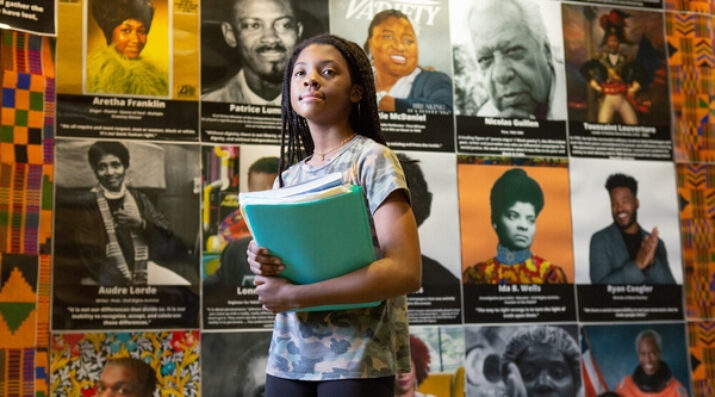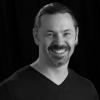Why Schools Need to Change
Where Does Agency Come From?
Topics

Today’s learners face an uncertain present and a rapidly changing future that demand far different skills and knowledge than were needed in the 20th century. We also know so much more about enabling deep, powerful learning than we ever did before. Our collective future depends on how well young people prepare for the challenges and opportunities of 21st-century life.
What does it really mean to know how to shape your life? To shape the world? 5 key questions examine ways to build agency with young people.
This past June, the faculty of the Workshop School collectively rewrote our vision statement. I will confess that I was not optimistic about the exercise. It was the last day of the year, everyone was exhausted, and I have been through enough proforma strategic planning exercises to be a little bit cynical about this sort of thing.
I was quickly proven wrong. We have always had a strongly held set of common values, and our team brought their best energy, creativity, and listening skills to the process. The whole exercise took about an hour, landing on a statement that felt both simple and authentic:
We envision graduates who value learning and growth, build community, and know how to shape their lives and our world.
Looking at our model, it’s not hard to see how the first two parts of this statement get translated into action. Our curriculum is built around learning progressions across a range of competencies, with a specific focus on how students hear, understand, and use feedback. And like many schools that emphasize authentic learning, both productive struggle and opportunities to reflect on growth and challenges are integral to our pedagogy. It’s pretty clear how these inputs lead our graduates to value learning and growth.
Similarly, our primary design principle is “community first.” All of our project work happens in advisory, meaning that community building and academic work happen concurrently. These groups spend more than half of every school day together. We open every day with circles, and restorative practices are deeply embedded in our values and our interactions. Community creates safe spaces for learning and growth, upholds shared values, and underscores the responsibility of each individual to something bigger. After four years of immersion in this environment, we should be graduating community builders.
The third item in our vision statement is harder to pin down. What does it really mean to know how to shape your life? To shape the world?
Agency: A Not-So-Great Term for a Critical Idea
I’ve always been reluctant to lean into the idea of agency. It strikes me as one of those terms we like to use a lot but never really define. It’s hard to measure. And it evokes abstract sociological debates that too often end up chasing their tails to little collective end. And yet, I can’t come up with anything better and it’s too important a concept to let go of. In fact, when I think about what I really want for our students, it is probably the single most important outcome we’re after.
While many of us in education can be careless in our use of the term, there has been some terrific work done on how to define student agency. Synthesizing a broad and diverse literature, Jennifer Davis Poon argued that student agency comes down to four main components: set advantageous goals, initiate action toward those goals, revise and reflect, and internalize self-efficacy.
Poon’s work focused on student agency within the context of school and thus focused on the exercise of meaningful autonomy within (more or less) controlled learning environments. But agency becomes even more critical when we think about sending our graduates out into the world, where the learning environments are more wicked than kind. In Designing Your Life, Bill Burnett and Dave Evans argue that fully eighty percent of the job market is “hidden,” and that the jobs in this hidden market are co-created through networking and relationship building. This too is a form of agency: not just navigating the environment but shaping it. Beyond job seeking, feeling a sense of control and direction in one’s life is a big part of overall life satisfaction or happiness.
Unlike community building, skill development, or deepening content knowledge, the link between inputs and outputs is indirect when it comes to agency. The more I think about it, the more I see it as an emergent property of the school experience, a kind of mosaic formed by different types of work and learning. Reflecting on how the Workshop School model builds agency, I ask myself these questions:
- In what ways do we build deep self-awareness and honest reflection? Agency means being willing and able to chart your own course. How many “successful” people reach long-range career milestones, only to realize that it wasn’t what they really wanted after all? We want students to define success and happiness on their own terms.
- What experiences are we providing to help students really learn what they are interested in or care about? We only know what we know. Trying new things is not only great for learning, it’s the only real way to know what we like, care about, and are good at.
- How do we build belief, confidence, and self-efficacy? This is so much more than positive slogans. The experiences that really build our belief in ourselves are the ones where we struggle, then overcome. How do we make it safe for students to struggle? How do we get them to understand struggle as part of growth? How do we frame and talk about failure?
- How do we build social capital? The adult professional world is powered by networks. How are students building their network while in school, and how are they learning to leverage it? How do we teach them to traverse social, economic, and institutional boundaries?
- How do we teach learning strategies? When they reach adulthood, most of what our graduates learn will be self-taught and informal. How are students learning to learn absent the structure of a classroom?
There is no one right answer to any of these questions, nor is there one right approach to building agency with young people. It is, however, a collective effort. Agency is built in projects and in circles, on internships and in meetings with counselors, in the ways we celebrate success and confront setbacks. It builds over time and with experience, a thousand small interactions coalescing into a vision of who we are, what we want from life, and how to get it. In short: how to shape our lives and our world.
Photo at top by Allison Shelley for American Education: Images of Teachers and Students in Action.




